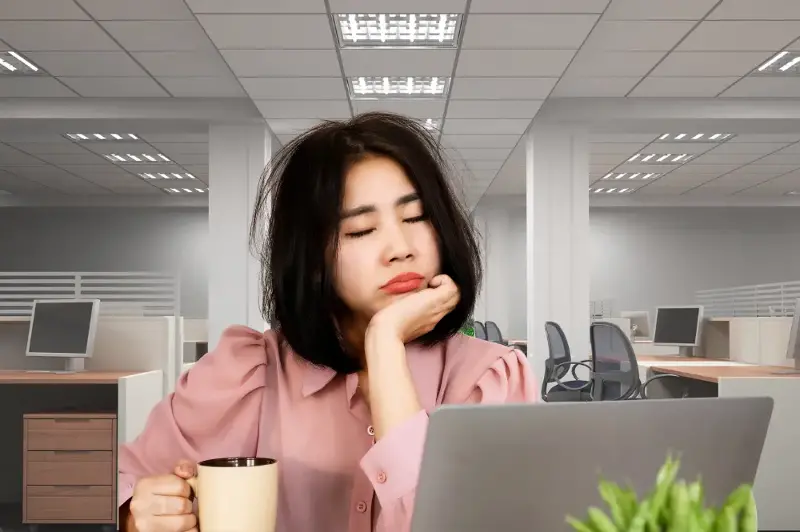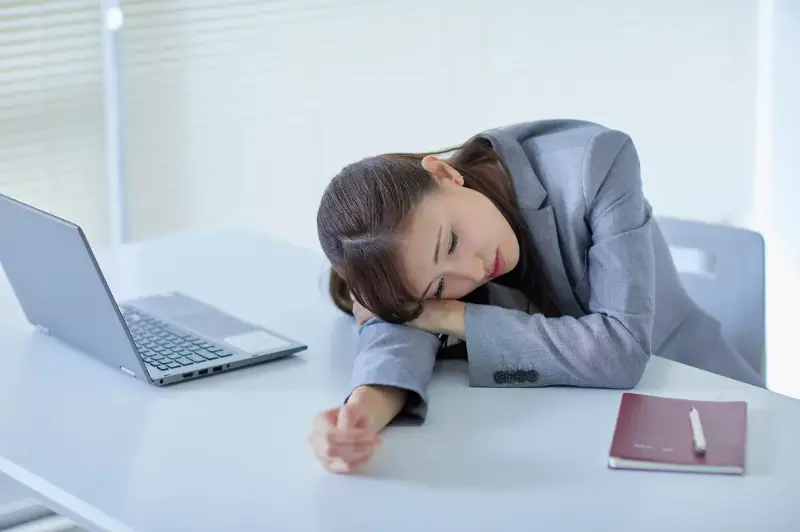
That dreaded post-lunch slump often dubbed the "food coma" is very real.
Instead of recharging your batteries, a hearty meal can leave you sluggish, unfocused and fighting to keep your eyes open. Experts say the crash isn’t about laziness but a mix of biology, food choices and daily habits.
According to IMU University Nutrition and Dietetics Department Dietitian Nur Adila Samingan, the afternoon slump is a genuine biological event.
She explained that our bodies naturally follow a circadian rhythm, an internal 24-hour clock that governs energy and alertness.
"One of the low points of this rhythm happens in the early afternoon, typically between 1pm and 3pm When this natural dip coincides with a meal, especially a heavy one, drowsiness becomes even more noticeable," she said.
Adila emphasised that when we eat a heavy meal, the body redirects more blood toward the digestive system to help process food, which can leave slightly less circulation available for other parts of the body.
"This shift often brings about a feeling of tiredness or sluggishness. The effect can be even stronger if someone is already dealing with stress, inadequate sleep at night or a lack of regular physical activity," she added.
Adila highlighted that food is only one piece of the puzzle, stressing that lifestyle habits strongly influence how sleepy you feel after meals.
- Sleep quality: Adults who sleep less than 6 hours per night are significantly more prone to afternoon fatigue compared to those getting seven to eight hours. If you are already sleep-deprived, even a light lunch can trigger sleepiness.
- Hydration: Mild dehydration is an often-overlooked cause of fatigue. Since many people forget to drink water throughout the morning, especially in air-conditioned workplaces, they may feel tired after lunch simply because their body is low on fluids.
- Stress and activity levels: High stress can leave you drained by midday, while a sedentary morning with little movement reduces blood circulation and oxygen supply, both of which affect alertness.
She reminded that if exhaustion after lunch happens often, it is worth examining not just what is on your plate but also how well you are sleeping, hydrating and managing your daily routine.

Naps vs. Nutrition
For many, the solution lies in adjusting eating habits.
"Adjusting meal composition and portion size is often the easiest solution for busy people who can’t afford to nap during work hours," Adila said.
However, she noted that short naps are not necessarily a bad thing.
"In fact, research suggests that a ten to twenty minute ‘power nap’ can improve alertness, mood and performance without causing grogginess.
"Some countries or companies do allow power naps which may help to refresh the brain and improve work efficiency," she told Sinar Daily.
She added that if you have the flexibility, a brief nap combined with balanced eating may be the ideal way to beat the slump.
"For those who cannot nap, focusing on dietary and lifestyle adjustments is the practical choice," she said.
Adila concluded that feeling sleepy after lunch is natural but does not have to derail productivity.
"By understanding how food choices, blood sugar and lifestyle factors interact, you can take steps to stay alert and energised," she said.
She emphasised that whether it’s rebalancing your plate, drinking more water, adding stretching exercises or sneaking in a short nap, small adjustments can make a big difference in how you power through your afternoons.
